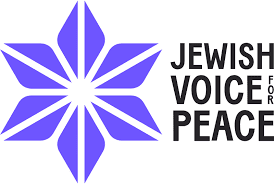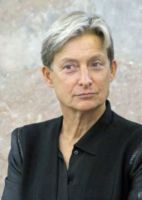November 10, 2025
Thomas Römer, Chairman of the Collège de France
Philippe Baptiste, Minister of Higher Education
The Academic Council of Jewish Voice for Peace* writes to express our concern and outrage that the Collège de France has canceled the symposium, “Palestine and Europe,” on the basis of unfounded media attacks and pressure applied by the French Ministry of Education. Our understanding is that the cancellation of the symposium, scheduled for many months, occurred only after an article was published in the conservative French weekly, Le Point, on November 7th, referring falsely to the symposium as promoting antisemitism, which prompted pressure on the Minister of Higher Education, Philippe Baptiste, to cancel, which he did. As well, the justification provided for this action sought recourse to the disingenuous excuse of “guaranteeing scientific rigor” though no evidence has been given for that claim. Indeed, as has happened before, that justification turns out to be a shield for committing injustice, unfairly censoring legitimate scholarly research and conferences dedicated to their dissemination.
As more than 120 scholars from various disciplines who represent the Academic Council of Jewish Voice for Peace*, we represent a wide range of academic fields in Jewish Studies and the history of antisemitism, including Genocide Studies. We oppose every form of antisemitism, as we do all forms of racism. We also reject all efforts to deploy the allegation of antisemitism for purposes of censorship or to suppress viewpoints on Israel and Palestine that should be heard and discussed. The charge of antisemitism must be preserved for all occasions in which it is truly deserved. But the disingenuous and specious use of the allegation to close down legitimate scholarship and open debate not only undermines its moral force but serves the purposes of censorship. Instead, we urge you to uphold widely shared principles of academic freedom: the publication and circulation of scholarship, open inquiry in the academy and public debate in democratic societies.
We are familiar with the scholarship of the named participants in the proposed symposium and attest to the high quality of their scholarly research and public presentations: their publications meet the highest standards of academic rigor, impartiality and scholarship. There is no evidence of antisemitism in the program that has been published, and any allegations to the contrary are based on a false representation of these scholars and their scholarship. The participants hail from some of the most prestigious universities in Europe where their scholarly work has been fully reviewed and affirmed. The program of the symposium rightly reflects the state of current scholarly discussion and current public debates on Gaza and Israel/Palestine more broadly. We urge you not to suppress scholarly discussions of matters of public interest, even when passions run high. Only a commitment to open and evidence-based intellectual life can bring such matters into a needed perspective and serve both scholarly purposes and informed public debate.
We call your attention to the pattern of slander engaged by LICRA, the International League Against Racism and Anti-Semitism. Not only is this organization leading the slanderous campaign against the symposium, but it has long been regarded as a group with very limited scholarly credibility, focusing its efforts on campaigns dedicated to fueling fears and inflaming anti-Arab/Muslim/Palestinian hatreds. The Ministry of Higher Education and the Collège de France should not allow themselves to be influenced by a group whose scholarly credentials are so manifestly weak, and whose aims are polemical, slanderous, and inflammatory – undermining the very criteria of intellectual standards applied in the most esteemed French universities. Moreover, educational institutions have an obligation during times of escalated political passions to gain and disseminate knowledge, consider a wide range of viewpoints, and establish conditions for informed public debate and judgment. The symposium you have cancelled proposed to do precisely this.
When such a highly esteemed institution such as the Collège de France allows itself to be pressured to censor scholarly activities, it risks not only losing its own academic independence and integrity but sets a worrisome precedent for universities struggling to maintain their internal standards and self-governing procedures during these increasingly authoritarian times.
Let us be clear: the decision to cancel this important event is an act of censorship, one that allows the arbitrary and inflammatory expressions circulating in the media to form the basis of a decision that should have been, and ought now to be, by any reasonable standards, to support the symposium and its aims. When “sensitive” topics become available to public understanding and debate, scholarly viewpoints can be refined and various perspectives can be openly discussed and debated. The international academic community has traditionally relied on the Collège de France to uphold such standards, despite the escalated demands of political groups and government officials. No less than its own highly admired autonomy is at stake, one that has inspired colleges and universities throughout the world. We therefore call on the Collège de France to maintain its own highest principles and reverse its decision, permitting the symposium to go ahead with its published and important program. We ask as well for the French Ministry of Higher Education to review the process by which such an ill-advised decision was made, privileging inflammatory and falsifying public opinion over scholarly criteria. This should have been a decision that reflects the providence of the university. The refusal to alter scholarly or professional judgment in response to external intervention would have defended that autonomy and reflected both the Collège’s scholarly standards and its dedication to both academic freedom and open inquiry.
*The Jewish Voice for Peace Academic Council is a network of scholars dedicated to furthering JVP’s vision and values https://www.jewishvoiceforpeace.org. Drawing upon our shared commitment to both progressive Jewish values and Palestinian liberation, we organize in solidarity with the Palestinian freedom struggle in educational and academic settings. We draw upon our skills as scholars, educators, and writers to develop critical analysis of contemporary censorship on Palestine. We oppose the deployment of the charge of antisemitism to censor or criminalize speech critical of the State of Israel’s treatment of Palestinians. We defend employment rights, academic freedom, and rights of association within higher education and confirm the core values of Jewish Voice for Peace.
Contact: Jonah Rubin, jonah@jewishvoiceforpeace.org




